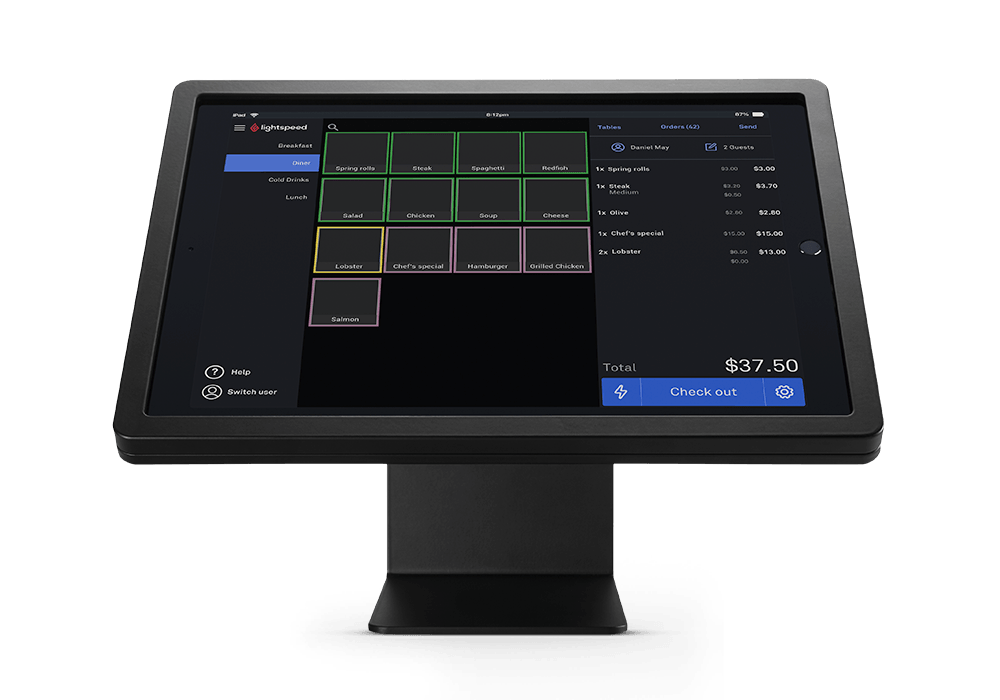Within the current fast-paced retail and hospitality environments, understanding the importance of a Point of Sale (POS) system is crucial for any business owner. A modern POS solution is much more than a device that handles transactions; it serves as the central hub for managing various elements of a business, ranging from inventory to client interactions. As tech evolves, POS solutions have evolved from basic cash registers into sophisticated cloud-based solutions that can significantly enhance operational effectiveness and customer experience.
For those new to the idea or looking to improve, navigating the various options out there can be overwhelming. This detailed guide intends to demystify POS solutions, examining their evolution, features, and benefits. Whether operate a restaurant, a retail outlet, or a small business, understanding how to choose the appropriate system, meld with other software, and ensure security will empower you to make informed decisions that drive your business forward. Join us as we delve into the key elements of POS systems and how they can transform your operations.
Understanding Point of Sale Solutions
A POS system is a combination of hardware and programs that enables businesses to complete sales transactions effectively. Traditionally, this involved managing register systems, but modern POS systems currently feature a variety of functionalities that help with inventory management, customer relationship management, and sales reporting. Grasping what a POS system entails is essential for businesses looking to improve their processes and improve customer service.
As technology has evolved, POS systems have evolved from basic cash registers to robust, cloud-based solutions. This shift has allowed businesses to get real-time data from anywhere, facilitating better decision-making and enhanced customer interactions. With the advent of mobile POS systems, businesses can also facilitate transactions on-the-go, integrating convenience into their service offerings. This versatility is especially advantageous in fast-paced environments like restaurants and retail stores, where customer preferences can shift rapidly.
The increasing importance of security in financial transactions cannot be emphasized enough. Modern POS systems are designed with sophisticated security features to safeguard sensitive customer data and ensure compliance with industry regulations. From EMV chip technology that minimizes fraud risk to regular software updates that protect against cyber threats, it is essential for businesses to choose a POS system that prioritizes security. By grasping these factors, businesses can make educated decisions and adopt systems that not only improve operations but also build trust with their customers.
Selecting the Ideal POS System
Picking the right POS system is essential for the growth of your business. First, you need to evaluate your unique needs based on the character of your work, whether it's hospitality. Think about factors such as the level of transactions, client traffic, and types of goods or services you provide. A solution that matches with your business requirements can simplify processes, enhance efficiency, and in the end increase customer happiness.
Next, assess the functionalities and functionality that are most crucial for your business. Look for systems that include vital features such as stock control, performance reporting, and customer relationship management integration. Additionally, make certain that the system includes multiple payment choices, including digital payments, to cater to customer choices. As technology evolves, emphasize systems that are not only easy to use but also flexible, allowing your enterprise to scale without needing a full redesign of your POS system.
Finally, think about the support and education offered by the POS vendor. An effective POS solution is one that comes with comprehensive customer assistance and training tools to help your team use it effectively. Research user reviews and consult potential vendors about their customer service capabilities. An established vendor with a track record of support can make a meaningful difference in how smoothly your solution operates and how swiftly your employees becomes adept in managing it.

Security and Upkeep
Securing the safety of your POS system is crucial for safeguarding confidential customer data and upholding your business reputation. Cyber risks are constantly evolving, and companies must be proactive in safeguarding their systems. Click This Link includes implementing robust safety measures such as full encryption, data tokenization, and multi-factor authentication . Regularly updating your software to resolve vulnerabilities and using firewalls can go a long way in ensuring your data secure.
Upkeep of your POS system is equally important to ensure optimal performance. Routine checks should include verifying hardware functionality, refreshing software, and safeguarding data to prevent loss in case of breakdown. A well-maintained POS system not only functions smoothly but also reduces downtime, which can interrupt service and affect customer satisfaction. Think about scheduling regular maintenance checks and keeping a checklist of essential tasks to ensure your platform remains in optimal condition.
Educating your staff on security best practices is a key aspect of maintaining your POS platform. Employees should be aware of potential security risks, such as phishing or insider threats, and know how to react appropriately. Providing https://mccain-delacruz-2.hubstack.net/an-next-generation-of-shopping-how-pos-technologies-are-changing-retail and resources can empower your team to defend the system proactively. Additionally, having a clear strategy in place for dealing with security breaches, such as communication protocols and response strategies, will ensure that your company is prepared to handle any issues that may arise.
